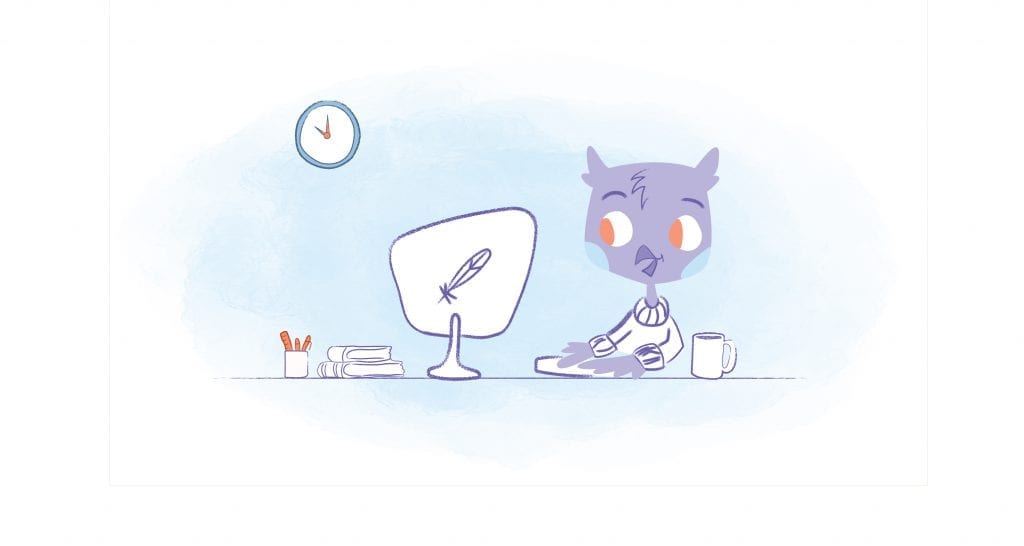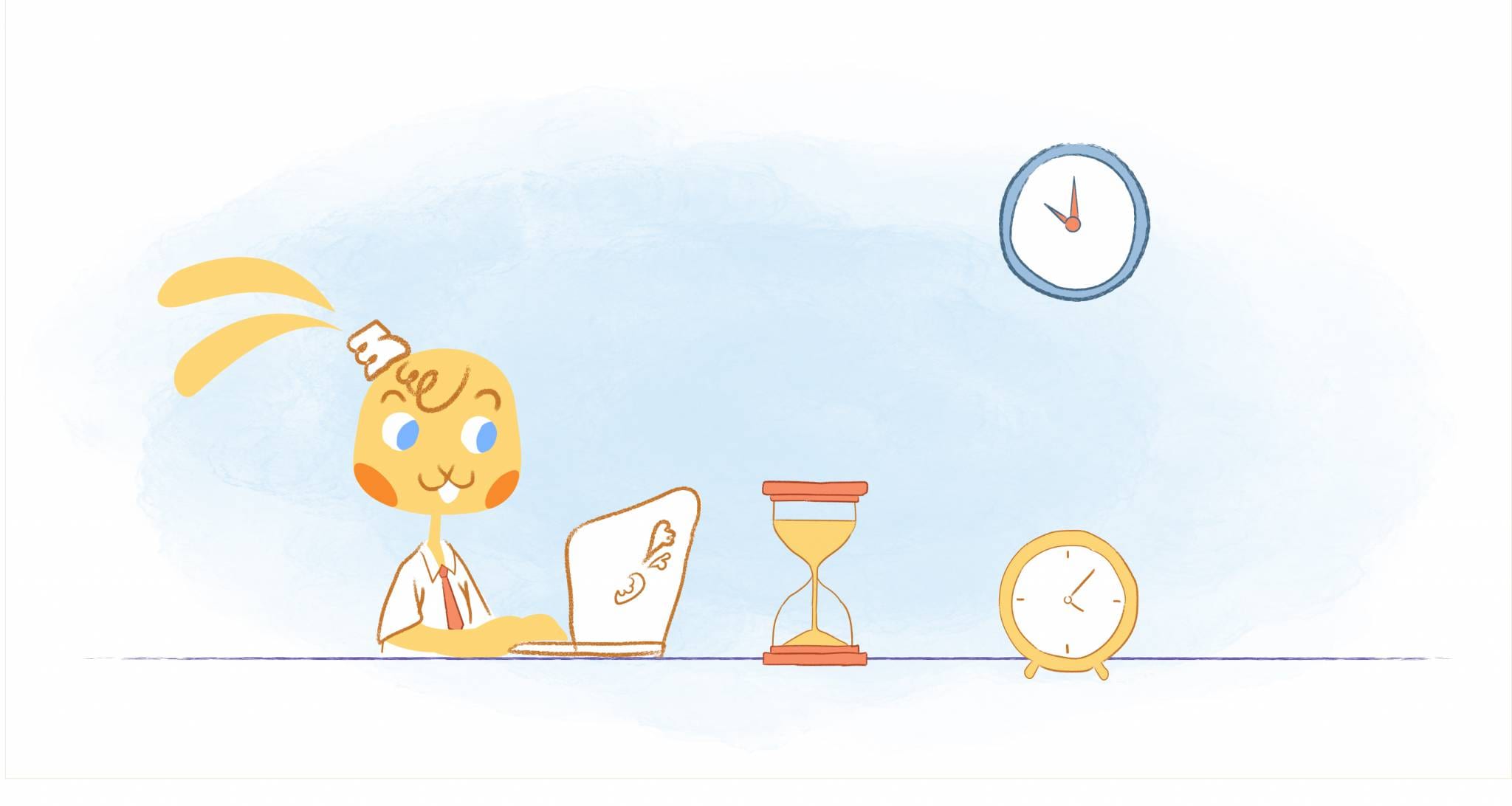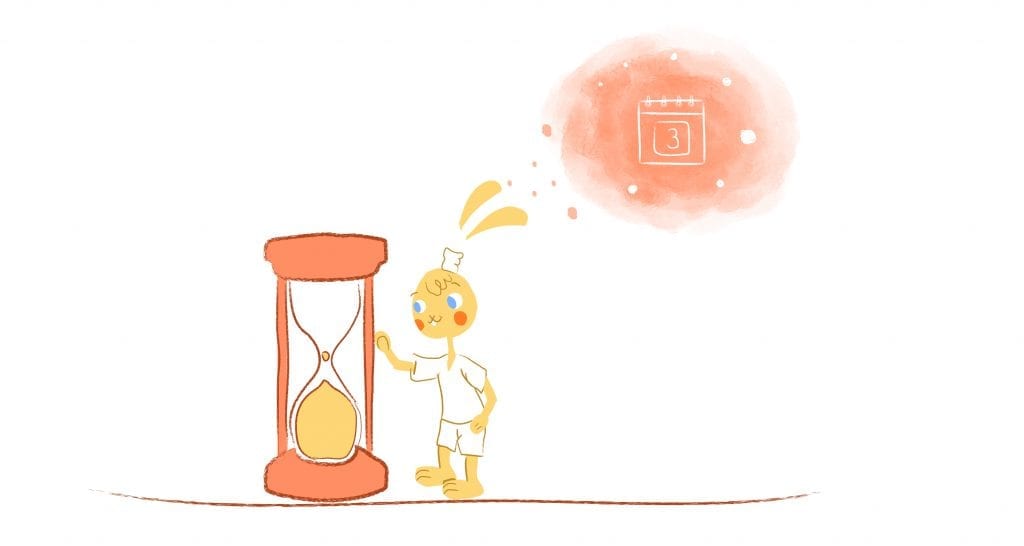

Online resources for entrepreneurs are plentiful these days, both to learn about the fundamentals of business ownership, saving time and to operate that business. And since many businesses exist purely online or otherwise don’t require a physical location, it’s possible to start a business from home, or convert your side hustle into a full-fledged, sustainable career.
However, even the most straightforward online businesses require a massive investment of time to be successful. You’ll need to spend hours researching, drawing up plans, and of course, switching hats as you accomplish the various tasks necessary to help your business grow. Learning to manage your time wisely, and reduce your hourly commitments, is essential if you want to become profitable—and keep your sanity in the process.
The Importance of Time Management
Time management, in this case, is all about maximizing the benefits you can get (i.e., how productive you are) while minimizing the number of hours you spend. There are several high-level approaches that can help you here; you can try to increase the efficiency of your tasks, thereby improving the ratio of value to hours spent, you can reduce the hours you spend on tasks that don’t return much value, or you can focus on increasing the amount of passive value you get without an ongoing investment of hours.


Learning to think of your hours as a resource, like you would with money in the context of a budget, is crucial if you want to succeed as a self-employed entrepreneur, and arguably is the most important skill to master early on.
There are several areas that can help you save time, and master your allocation of those precious hours.
Using the Right Tools for Saving Time While Building a Business
Even if you’re practicing as a solo entrepreneur, you’ll be relying on external tools to handle tasks, either directly or indirectly. The number, quality, and management of these tools can be responsible for saving you hours of time—or costing you more unnecessary hours.
Consider:
Using the right kind of online dashboard can dramatically improve your productivity.
Online dashboards help you measure, at a glance, your business’s performance in one (or more) of several key areas, like sales, marketing, or advertising. If you’re not getting the right data, your hours of research and analysis may be wasted, leading you to a false conclusion.
If the dashboard isn’t intuitive or easy to understand, it could take you several hours longer than necessary to get the information you need. Be choosy here, and go with a product that ultimately saves you time.Automation and simplification.
Any product that automates something you ordinarily would have done by hand has the potential of saving time. For example, if you always schedule a calendar event manually when you receive a certain type of email, you could use a protocol from IFTTT to make it happen automatically. Instead of building out a new report in your marketing dashboard every month, you can have it be generated and sent to you at the first of each month. Even if it only saves you a minute, these time savings add up over the course of weeks and months.
- That said, you don’t want to go crazy with time-saving calendar apps. Each app you download and use is going to cost you time during setup, time to learn and maintain, and possibly a subscription fee. And if your device becomes overloaded with too many apps, you’ll find it harder to work in general. Therefore, it’s better to choose one or a few multi-functional apps than it is to download dozens. Experiment with new apps regularly, but only keep the ones that offer you the best benefits.
Time tracking as a Remote Entrepreneur.
Awareness is your greatest tool in maximizing your productivity. If you know exactly where you’re spending the hours of your day, and how those hours are returning value to you, you can make more informed decisions, like getting rid of your most harmful distractions, or spending more time on the activities that seem to be most valuable.
The only reliable way to get these data is to use a time tracking tool, and use it consistently.
Setting the Right Goals and Priorities
Spending time efficiently also means setting high-level goals and priorities. This is for both your business overall and for the individual days in which you’re working.
Goals and sub-goals.
What is your business trying to achieve? Are you focusing on keeping a positive cash flow? Is your biggest goal attracting new customers? Whatever it is, try to break it down into three or four sub-goals. Then, for each task or item that occupies your attention, ask yourself, is this getting you closer to one of your goals? If not, reexamine whether it’s worth doing.
Task lists and prioritization.
It should go without saying that making task lists can make you more productive; they’re a way to organize your thoughts, direct your action, and make you feel accomplished when you cross things off. But how are you prioritizing things? Ideally, you’ll use an Eisenhower decision matrix to evaluate each prospective task in terms of both importance and urgency (which are related, but distinct concepts), so you can spend your time only on the tasks that require your attention the most.
Scheduling and time blocks.
It’s also helpful to schedule your day into blocks, working in breaks on a regular basis. Time blocks help you keep your high-level objectives in mind, while preventing you from multitasking or flitting from priority to priority. For example, you could schedule an hour of time in the afternoon to catch up on communications, so you aren’t pulled away from your heads-down work to answer every email that comes in.
Eliminating Distractions as an Entrepreneur
Distractions are almost always a waste of time. Not only do they occupy your attention for minutes to hours at a time, but it also takes your mind 23 minutes to fully recover its attention after getting distracted. Distractions can be hard to ferret out and eliminate, but these areas can help you:
- Your home office. Spend some time building out your home office, and make sure the area is free from potential distractions like televisions or food.
- Notifications and communication. Notifications from apps and sources of communication are the most frequent and most time-intensive distraction most of us face. Simply turning notifications off when you are working can make a remarkable difference in your performance.
- Understanding points of weakness. Use time tracking or app controls to learn when you’re most frequently distracted. Learn what seems to be distracting you. Next, make a plan for how to counter those temptations. Following through is the hardest step, at least for me. Even your worst habits can get better if you commit to working on them.


The Role of Delegation as an Entrepreneur
Too many entrepreneurs waste their time on tasks that should be handled by other people. You can make strides in time efficiency by learning how (and when) to delegate:
Know the value of your time.
1. Calculate the value of your time by estimating your hourly rate from a previous traditional job.
2. Estimating how much revenue your business stands to make you on an hourly basis.
3. Find someone to do a tasks that you’re not as productive doing. Make sure you’re earning more than they do. It’s usually worth hiring them to do it if you can find it. This makes you infinity scalable.Build a trusted network.
Spend some time building a network of freelancers and contractors you trust. That way, you’ll have someone to call on when you need the extra assistance.
Rely on experts.
Experts in their field may be more expensive, but they tend to handle things more efficiently and more completely; in other words, you get what you pay for in most disciplines.
Challenging Your Biases
The human mind is naturally wired in a way that responds to certain psychological triggers, and forces us into certain modes of thinking—not all of which are helpful in all circumstances. Sometimes, these inherent biases can make us spend time in an unproductive way. They even interfere with our ability to judge how we’re spending our time.
Challenging these biases requires you to be aware of them, and to compensate for them by thinking about the alternatives. These are just a few examples:
- Status quo bias. Status quo bias is our tendency to keep things the same, even if they aren’t ideal. For example, you’ll be tempted to follow the same procedures and commit to the same routine—even if there are massive improvements that could help you spend your time more efficiently.
- The sunk cost fallacy. The sunk cost fallacy makes us disproportionately value things that we’ve already spent a lot of time or money on. For example, you might be reluctant to stop using an unproductive project management platform simply because you’ve spent months and hundreds of dollars using it. You don’t want to feel like it was a waste. This mentality will damage your business, stop.
- Confirmation bias. Confirmation bias arises most frequently when we analyze data. Stop at your time tracking data assuming that there’s nothing you can improve. You’ll overlook contradictory evidence and unfairly prioritize information that backs your conclusion.
Saving Time While Building a Business Require Gradual Improvements
Try not to think of these strategies as instant overhauls; most of them aren’t going to give you a spike in productivity right away. Instead, their benefits will come to you gradually. As you start to think differently about how you spend your time, you’ll find it easier and easier to make positive changes.
Focus on making one iterative improvement at a time. Consider this process an ongoing journey rather than a one-time upgrade. You’ll be glad you did.











Nina Gass
Nina Gass is a content writer with a diverse background who understands the struggles of small business owners, freelancers, and company founders. Her content delivers insightful and actionable advice to improve time management, productivity, and sanity despite wearing numerous hats and juggling multiple responsibilities in work and life.